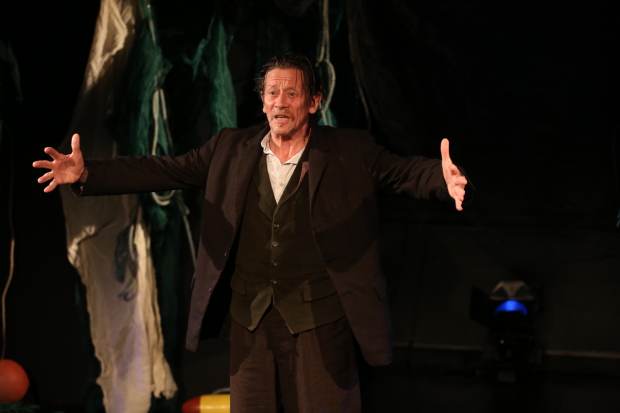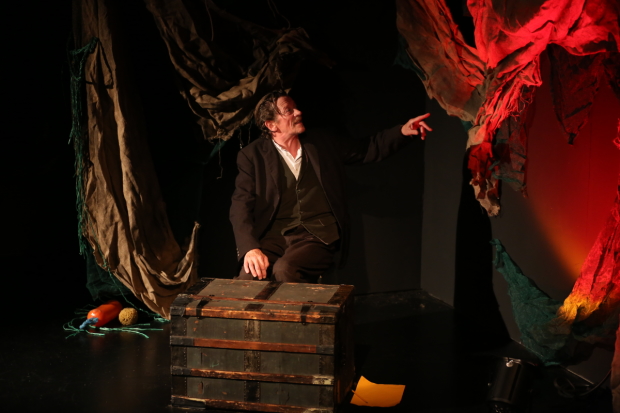First Person: Brendan Conroy on Taking a Solo Leap in Synge's The Aran Islands
Through research and collaboration with director Joe O’Byrne, Conroy finds the living breath in Synge’s prose.

(© Carol Rosegg)
I had always been curious about John Millington Synge, the man behind the turbulent and savage comedies The Playboy of the Western World, The Well of the Saints, and In the Shadow of the Glen. My curiosity rose from the fact that I could not find the author in his plays or else he was so well hidden he was invisible, which is a rare quality for the observer not to intrude into the observation. This gives Synge's characters a life that is grounded in their environment, be it walking the roads or running a shebeen on the north coast of county Mayo, his characters derive from a knowledge he gained from living, walking and talking amongst them. The vibrancy and wildness of their lives was in great contrast to his own upbringing as landed class, where he spent many summers in Castle Kevin county Wicklow. His family were deeply religious protestants and he himself rebelled against his background from an early age. How did a man, coming from such a contrasting cultural background come to write some of the greatest plays in Irish drama?
Some of the answers are contained in his early journals written when he first visited the Aran Islands on the advice of Yeats who told him 'Go and give a voice to these people!' Will we ever know how that conversation took place or the nuances of such an exchange? It was there in 1899, and over three subsequent trips, that he found the seeds of his plays The Playboy, Riders to the Sea, and In the Shadow of the Glen. The Aran Islands were where Synge discovered a culture in which words, sentences, and stories were creative actions that imaginatively enhance and enrich the lives of the islanders, a people who lived mostly forgotten in these worlds of mist. He fell under the spell of the wilderness around them as well. In his journals Synge captures man isolated in a universe warring upon them with winds and seas. This ironically mirrors his own personal journey as he struggled with Hodgkin's disease, which placed him also under a sentence of death from a young age. Yet, within this world there is life and laughter, love and joy, and devilment.
So myself and Joe O'Byrne set out on this voyage to explore Synge's early experiences of Aran and we found a treasure trove of characters, storytellers, and the drama of evictions, which are strangely relevant again in today's Ireland, along with the extraordinary ritual of keening that accompanied the final journey of loved ones to the grave.
The process involved following a template set out in Joe's adaptation and infusing it and Synge's prose with some kind of living breath. These words were written to be read, the shape of the sentences were sometimes formal. This kind of language was really challenging to sustain in a performance piece. It had to be informed with emotions and rhythms as if these words were the tip of a wave rushing towards the shore. To arrive at that point was a learning process that extended well into the rehearsal period. It was not a case of imposing any concept on the script, but rather being open to receiving it and rolling with it until I could swim in it or ride it like a currach rides the waves that crash around the rocks of Inismaan.
I had never done a one-man show before and, when going on for the first preview, I realized that I was leaping into thin air. Once I realized that fear was useless, a strange sense of calm landed somewhere around me — and it would only be two hours later that I would know where I landed. It is the same leap every night…it doesn't get any easier! Does Synge elude us again? If we evoke his presence among the rocks and rains of Aran through his own words, then maybe that would be as much as he would have desired.

(© Carol Rosegg)








